If you have a bird of paradise plant, you may have noticed that its leaves are sometimes split. This can be caused by a number of factors, including too much sun, too much water, or even a lack of nutrients. Luckily, there are a few simple fixes that can help prevent this from happening.
What Causes Split Bird of Paradise Leaves?
One possibility is that the plant is not getting enough water. Finally, it’s possible that the plant is not getting enough nutrients. There are a few reasons that your bird of paradise leaves may be splitting. If the leaves are scorched or the plant is wilting, it’s a sign that it needs to be moved to a shadier spot. Another possibility is that the plant is getting too much sun. If the leaves are yellowing or the plant is not growing as quickly as it should, it’s a sign that it needs to be fertilized. If the leaves are wilting or the plant is drooping, it’s a sign that it needs to be watered more frequently.
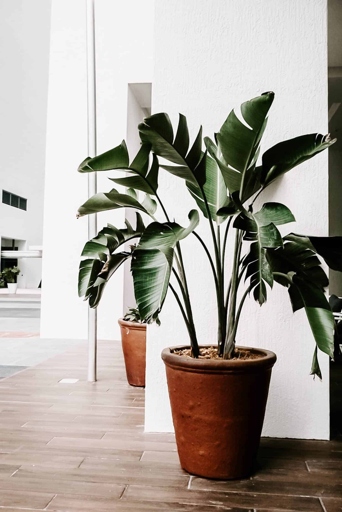
If you’re not sure what’s causing the problem, the best course of action is to take a sample of the affected leaves to your local nursery or gardening center. They’ll be able to help you diagnose the problem and find a solution.
Irregular Watering
If you’re a gardener, you know that one of the cardinal rules is to water regularly. But what happens when you break that rule? Your plants may suffer from irregular watering.
The water pressure can cause the plant’s leaves to split. This can happen when a plant is allowed to dry out completely, then watered heavily. One of the most common problems caused by irregular watering is leaf splitting.
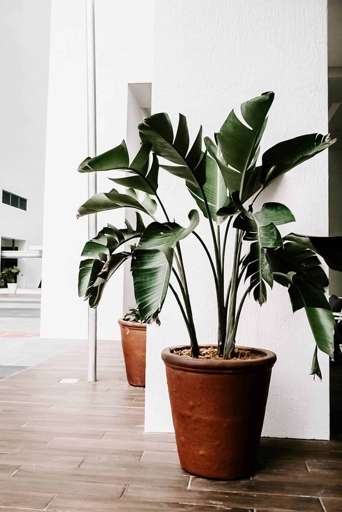
If you water your plants erratically, they may never get enough moisture to stay healthy. Leaf splitting can also be caused by inconsistent watering. The leaves can split from the lack of water, or from the stress of constantly fluctuating moisture levels.
The best solution is to water regularly and deeply, so that the roots can absorb the moisture they need. If you’re not sure how often to water, check the soil before watering. If you notice your plants’ leaves are splitting, it’s important to take action immediately. If it’s dry several inches below the surface, it’s time to water.
Fertilizing can help them recover from the stress of inconsistent watering. And if the leaf splitting is severe, you may need to trim off the damaged leaves. If you’ve been irregular with your watering schedule, your plants may also need some extra TLC.
By following these tips, you can help your plants recover from irregular watering and prevent future leaf splitting.
Lack of Humidity
If you notice your bird of paradise leaves splitting, it could be due to a lack of humidity. While these plants are native to tropical regions, they can also thrive in more temperate climates. However, they will need a bit more humidity than most other plants.
One is to mist the leaves with water a few times a day. Or, if you have other houseplants, group them together with the bird of paradise. The increased humidity will benefit all of the plants. You can also place a humidifier near the plant. There are a few ways to increase the humidity around your bird of paradise.
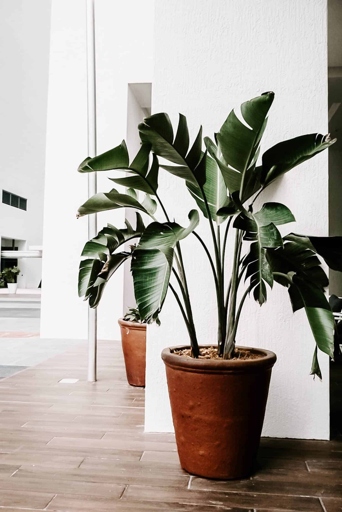
In addition to misting and using a humidifier, you can also place the plant on a pebble tray. If you live in a particularly dry climate, you may need to take extra measures to keep your bird of paradise healthy. This will help to increase the humidity and prevent the leaves from splitting.
Excessive Direct Sunlight
You can also try to protect the leaves by covering them with a thin layer of cloth. The leaves of the plant are delicate and can easily be damaged by the sun’s rays. Excessive direct sunlight is one of the leading causes of bird of paradise leaves splitting. If you notice your plant’s leaves beginning to split, move it to a location that receives indirect sunlight.
Nutrient Deficiency
The most common nutrient deficiencies in bird of paradise plants are nitrogen, phosphorus, and potassium. These nutrients are essential for healthy growth, so if your plant is lacking in any of them, it will start to show signs of stress. If you notice your bird of paradise leaves splitting, it could be a sign of a nutrient deficiency.
If you think your bird of paradise might have a nutrient deficiency, the first step is to test the soil. You can do this with a soil test kit from your local garden center. Once you know which nutrients are lacking, you can amend the soil with the appropriate fertilizer. Be sure to follow the directions on the fertilizer package, as too much of any nutrient can be just as harmful as too little.
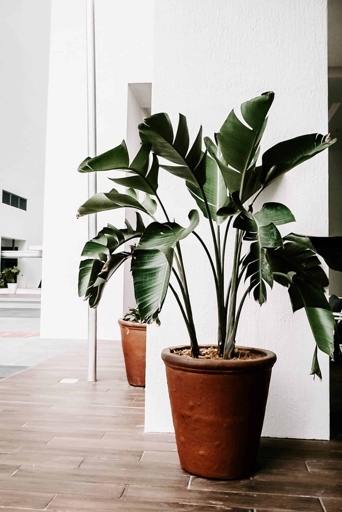
If your bird of paradise is already showing signs of stress, you can try giving it a foliar feed. This is a type of fertilizer that is applied directly to the leaves, where the plant can absorb it more quickly. You can find foliar feeds at most garden centers.
With a little care and attention, you can get your bird of paradise back on track and enjoy its beautiful blooms for years to come.
Curious Children or Pets
Here are 7 possible causes and fixes. If you have a curious child or pet, you know that they can be quite the handful. But what about when they’re also causing your bird of paradise leaves to split?
Your pet or child is playing too roughly with the plant. 1.
To fix this, simply make sure they’re not playing too roughly with the plant. If your bird of paradise is getting roughed up by your pet or child, it’s no wonder the leaves are splitting.
Your bird of paradise is getting too much sun. 2.
If your bird of paradise is getting too much sun, the leaves can start to split. To fix this, move the plant to a spot that gets less sun.
3. Your bird of paradise is getting too much water.
If your bird of paradise is getting too much water, the leaves can start to split. To fix this, make sure you’re not watering the plant too often.
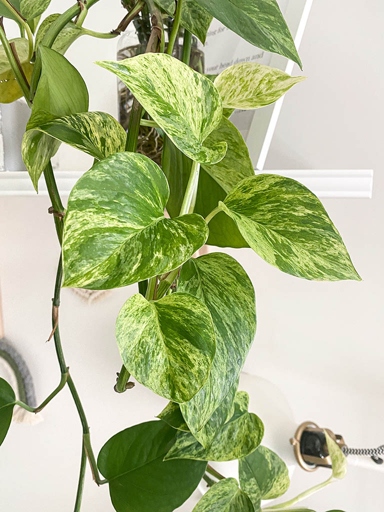
Your bird of paradise is getting too little water. 4.
To fix this, make sure you’re watering the plant more often. If your bird of paradise is getting too little water, the leaves can start to split.
Your bird of paradise is getting too much fertilizer. 5.
To fix this, make sure you’re not fertilizing the plant too often. If your bird of paradise is getting too much fertilizer, the leaves can start to split.
Your bird of paradise is getting too little fertilizer. 6.
If your bird of paradise is getting too little fertilizer, the leaves can start to split. To fix this, make sure you’re fertilizing the plant more often.
There’s something wrong with the soil. 7.
If there’s something wrong with the soil, it could be causing the leaves to split. To fix this, you may need to replant the bird of paradise in new soil.
Dropped Plants
This can be caused by a number of factors, including: One of the most common problems with bird of paradise plants is that their leaves split.
1. Overwatering
To fix this, cut back on watering and let the plant dry out a bit. This is because the plant is taking in too much water and the leaves can’t handle it. If you overwater your bird of paradise plant, the leaves will start to split.
Underwatering 2.
If you underwater your bird of paradise plant, the leaves will also start to split. This is because the plant isn’t getting enough water and the leaves are drying out. To fix this, water your plant more often.
Temperature changes 3.
To fix this, try to keep the plant in a stable environment. If the temperature changes suddenly, it can cause the leaves of your bird of paradise plant to split.
Nutrient deficiency 4.
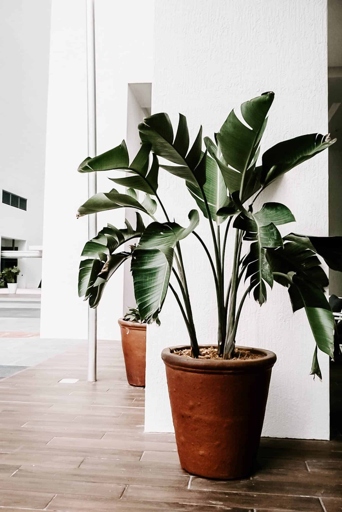
To fix this, fertilize your plant regularly. If your plant is lacking in nutrients, it can cause the leaves to split.
Pests 5.
If pests are attacking your plant, they can cause the leaves to split. To fix this, get rid of the pests and treat the plant with an insecticide.
Disease 6.
To fix this, treat the plant with a fungicide. If your plant is infected with a disease, it can cause the leaves to split.
Poor drainage 7.
If your plant is not getting enough drainage, the roots can rot and the leaves can split. To fix this, make sure the plant is in a well-draining pot.
General Roughhousing
However, sometimes roughhousing can lead to problems, such as leaves splitting. It’s a way for them to play and explore their environment. Roughhousing is a normal behavior for many birds, especially young birds.
One is if the bird is too rough and hits the leaves too hard. There are a few things that can cause leaves to split. Another is if the bird is using its beak to grip the leaves, which can cause them to tear.
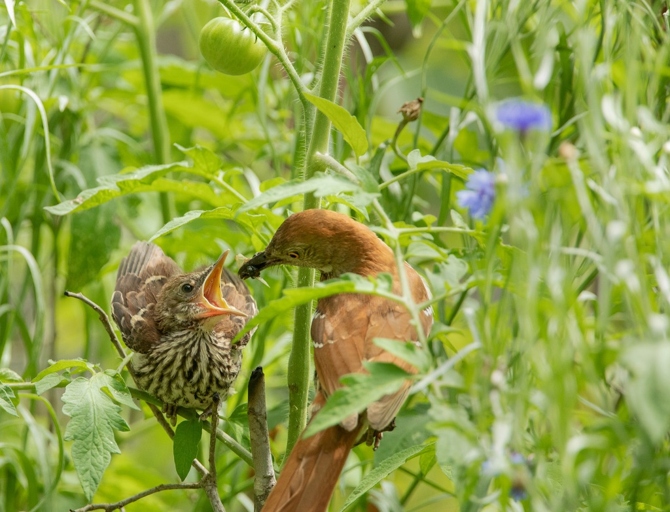
Second, provide your bird with a soft perch to grip onto so it doesn’t have to use its beak on the leaves. First, make sure your bird has plenty of toys and things to keep it occupied so it doesn’t get bored and start roughhousing. And finally, if the problem persists, you may need to trim the leaves back so they can regrow. If you notice your bird’s leaves are splitting, there are a few things you can do to fix the problem.
How to Fix Split Bird of Paradise Leaves.
If your bird of paradise leaves are splitting, it’s likely due to one of these seven common causes:
Too much sun: Bird of paradise plants need a lot of sunlight, but too much sun can cause the leaves to split. If your plant is in a sunny spot, try moving it to a spot that gets partial sun. 1.
Too much water: Bird of paradise plants don’t like to sit in wet soil. Let the soil dry out between watering, and don’t water the plant if the leaves are already wet. Overwatering can cause the leaves to split. 2.
Not enough water: If the leaves are splitting and the plant is wilting, it’s likely due to lack of water. 3. Water the plant deeply, making sure the water reaches the roots.
4. Use a fertilizer designed for bird of paradise plants, and follow the directions on the package. Nutrient deficiency: A lack of nutrients can cause the leaves to split.
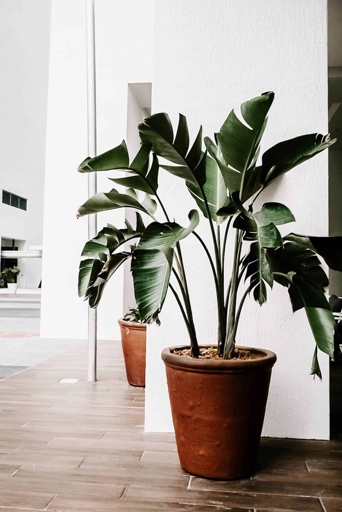
Pest infestation: pests can cause the leaves to split as they feed on the plant. 5. If you see pests on your plant, treat them with an insecticide designed for use on bird of paradise plants.
If the temperature gets above 90 degrees Fahrenheit, move the plant to a cooler spot. 6. Temperature extremes: Bird of paradise plants like warm weather, but too much heat can cause the leaves to split.
7. If your plant is in a windy spot, try to protect it from the wind by placing it behind a wall or fence. Wind damage: Strong winds can damage the leaves, causing them to split.
Tips on Preventing Further Leaf Splitting
If you want to prevent your bird of paradise leaves from splitting, there are a few things you can do. Over- or under- watering can cause the leaves to split. Third, make sure your plant is getting enough light. Finally, watch out for pests and diseases, which can also cause stress and lead to leaf splitting. Too much or too little light can also cause the leaves to split. First, make sure you’re watering your plant regularly and evenly. Second, fertilize your plant regularly to keep it healthy and prevent stress. If you take these steps, you should be able to prevent your bird of paradise leaves from splitting.
Other Leaf Problems for Bird of Paradise Plants
Other common leaf problems for bird of paradise plants include brown or yellow leaves, wilting leaves, and leaves that are falling off. These problems can be caused by a variety of factors, including pests, disease, or environmental stress.
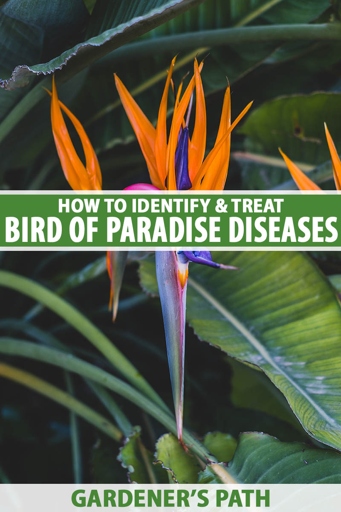
Brown or yellow leaves can be caused by a number of different pests, including scale insects, mealybugs, and aphids. Leaves that are falling off can be caused by a number of different factors, including pests, disease, or environmental stress. These pests can suck the nutrients out of the leaves, causing them to turn brown or yellow. Wilting leaves can be caused by a lack of water or by root rot. Root rot is a common problem in bird of paradise plants and can be caused by overwatering or by planting the plant in soil that is too wet.
Sunburn
Make sure you’re fertilizing your plant regularly to give it the nutrients it needs. Cut back on watering and see if that helps. Another reason for splitting leaves could be too much water. If you’re watering your plant too often, the leaves can start to split. If your plant is in a spot that gets a lot of direct sunlight, the leaves can start to split. There are a few reasons why your bird of paradise leaves might be splitting. Finally, your plant could be splitting leaves because it’s not getting enough nutrients. One reason could be sunburn. Move your plant to a spot that gets a little bit of sun and see if that helps.
Brown Leaf Spots
The best way to treat brown leaf spots is to remove the affected leaves and destroy them. You can also treat the plant with a fungicide. The spots are caused by a fungus and can be a serious problem if not treated. Brown leaf spots are one of the most common problems with bird of paradise plants.
Black Rot
If the problem is not corrected, the plant will eventually die. The plant will need to be watered less often and the soil will need to be allowed to dry out completely between watering. Black rot is one of the most common problems with bird of paradise plants. The problem is most commonly caused by too much water. The leaves of the plant will start to turn black and eventually fall off.
Final Words
However, there are a few common causes that are worth mentioning. As with any plant, there are a number of reasons why bird of paradise leaves may split.
If bird of paradise plants are overwatered, the leaves will begin to split. This is because the excess water will cause the leaves to swell, and eventually, they will split. Conversely, if the plants are underwatered, the leaves will also begin to split. One common cause of leaf splitting is improper watering. This is because the leaves will begin to dry out and eventually, they will split.
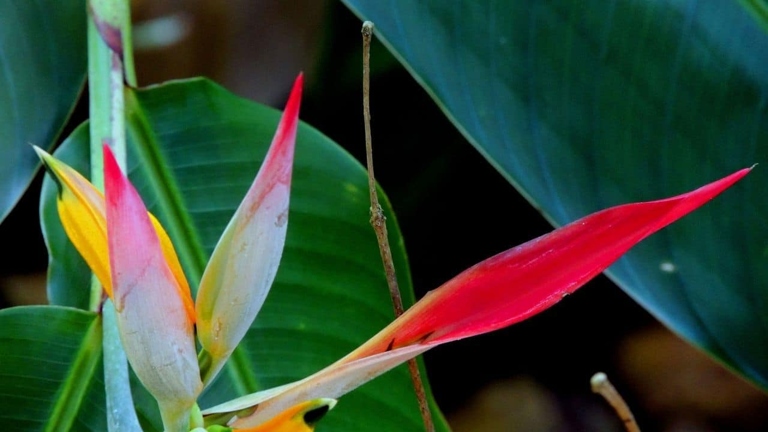
This is because the leaves will begin to dry out or freeze, and eventually, they will split. Another common cause of leaf splitting is temperature stress. If the plants are exposed to too much heat or cold, the leaves will begin to split.
If the plants are not getting enough nutrients, the leaves will begin to split. Finally, another common cause of leaf splitting is nutrient deficiency. This is because the leaves will begin to dry out and eventually, they will split.
If you notice that the leaves on your bird of paradise plants are splitting, it is important to try to identify the cause. Once you have identified the cause, you can take steps to correct it.
Frequently Asked Questions
1. Why are my bird of paradise leaves splitting?
There are a few reasons why your bird of paradise leaves might be splitting. It could be due to too much sun, not enough water, or a nutrient deficiency.
2. How can I fix leaf splitting?
If too much sun is the cause, try moving your plant to a shadier spot. If it’s not getting enough water, water it more frequently. And if it’s lacking nutrients, fertilize it with a balanced fertilizer.
3. What are the other causes of leaf splitting?
Other causes of leaf splitting include insect damage, disease, and temperature fluctuations.
4. How can I prevent leaf splitting?
To prevent leaf splitting, make sure your plant is getting the right amount of sun, water, and nutrients. Inspect it regularly for pests and diseases, and protect it from extreme temperatures.
5. What should I do if my bird of paradise leaves are already splitting?
If your bird of paradise leaves are already splitting, you can try one of the fixes mentioned above. You can also try trimming off the damaged leaves, which will encourage new growth.
Final thoughts
If you have a bird of paradise plant that is splitting, it could be caused by any of the 7 issues listed in this article. But don’t worry, there are fixes for each problem. With a little bit of care, your bird of paradise plant will be healthy and happy in no time.
